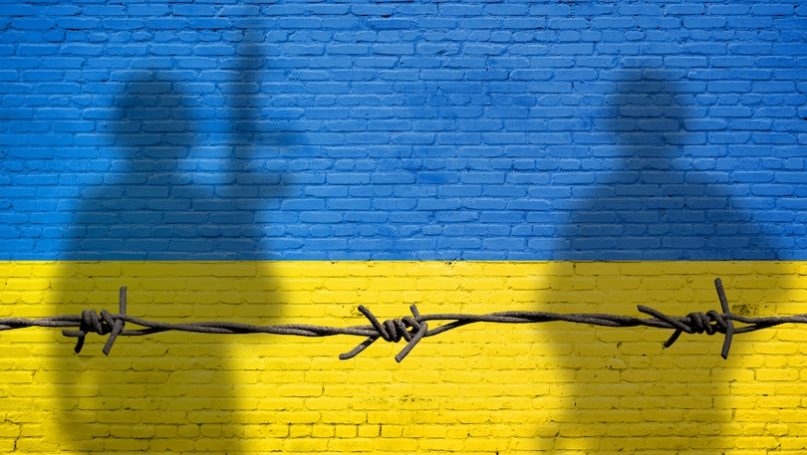
Alongside the war winds blowing on the borders of Ukraine, Russia and the West are waging a high-intensity psychological war – a struggle is no less important than the military threats. Israel has learned about the importance of the struggle for consciousness in the military operations it has waged against Hamas in Gaza. This struggle is important because it tries to answer some critical questions like who is right in the conflict? Who is responsible for the escalation? Who is the aggressor and who is the victim? The answers to these questions affect public opinion and so do the considerations of decision makers. All parties involved use intelligence, communication and diplomacy to win the psychological war.
Putin and his ministers have consistently denied any intention to start a war against Ukraine. They accuse the United States and the West of creating the crisis, inflating it and disregarding Russia’s security and legitimate interests in order to achieve goals such as strengthening NATO. Putin claims that the West created the crisis because it is trying to join Ukraine to NATO and the EU. That is the symbolic occupation of the former Warsaw Pact countries that would bring Ukraine into the NATO fold as has been with former Soviet bloc countries such as the Baltic states, Poland, Bulgaria, Hungary and Romania that have all joined NATO.
The United States and the Atlantic Alliance claim that Russia’s large concentrations of forces on Ukraine’s border from three sides, East, North and South are proof of Putin’s war intentions. The precedent of the occupation of the Crimean peninsula from Ukraine in 2014 and the establishment of semi-independent pro-Russian enclaves in the Donbas region, also confirm the suspicion that Russia faces another round of war aimed this time at replacing the pro-Western government in Kiev. The United States has even introduced a scenario in which militias in enclaves attack themselves, blaming Ukrainian forces for attacks and calling on Russia to cross the border and help them militarily. In this case, the goal is to expose Putin’s bluff even before it starts.
In psychological wars the opposing parties sometimes resort to historical analogies to reinforce their positions. The well-known analogies help the public better understand the current situation. Some politicians and commentators used the Hitler reconciliation, the abandonment of Czechoslovakia and the Munich Agreement that took place in 1938, on the eve of World War II, as a reminder to the West of its current lax positions in the Ukraine crisis. The British Minister of Defense, Ben Wallace, is one of those who mentioned the Munich Syndrome. He preferred to ignore the fact that Britain had denied its commitments to Czechoslovakia and was the one that signed the Munich Agreement. He actually criticized Germany’s seemingly soft policy towards Putin, due to wide-ranging economic interests.
Russia has preferred to use an analogy to the Cuban Missile Crisis of October 1962. It was the most severe crisis of the Cold War that nearly caused a direct nuclear confrontation between the United States and the Soviet Union. The latter placed nuclear missiles in Cuba about 150 miles off the coast of Florida. During it, President Kennedy claimed he couldn’t allow such missile bases “in the backyard” of the United States. Today, Putin claims that Russia cannot allow Ukraine, which is in its “backyard,” to join NATO.
Despite the principled similarity between the two crises, there are also some significant differences. The diplomacy that solved the Cuban Missile Crisis was secretive and the crisis ended in a compromise in which the Soviet Union evacuated the missiles in Cuba in exchange for the evacuation of similar American missiles from Turkey and a commitment not to forcibly overthrow the Castro regime in Cuba.
Biden has announced that he does not intend to defend Ukraine by military force because, in his words, such an act would result in a third world war. Diplomacy is public at the level of Western leaders, who make pilgrimages to Moscow, or like Biden who talks at length with Putin on the phone.
The lessons of the resolution of the Cuban Missile Crisis may only be relevant to the resolution of the current Ukraine crisis if the high-intensity psychological war waged in diplomatic circles and the open and social media is tuned down. That is if the true positions of all the parties is made known to each other and resolved behind the scenes in diplomatic negotiations.
The main obstacle that is leading to an escalation is the high scales and walls that all parties have climbed publicly in their high-intensity psychological war and rhetoric. This has contributed to a lack of trust in each other. Unless they back down from this it is doubtful that the Ukraine crisis will be resolved, even if all the troops are withdrawn from the battlefield and return to their barracks.
Further Reading on E-International Relations
- Opinion – A Psychological Perspective on Putin’s War with Ukraine
- Opinion – A Hidden Victory? The Winter War and Russia’s Invasion of Ukraine
- Opinion – The West Should Drop the ‘Hybrid Warfare’ Discourse on Ukraine
- Opinion – The European Union’s Status in the Russia-Ukraine Crisis
- Opinion – The West’s Credibility Crisis in the Midst of Putin’s War
- Opinion – 2025’s Gas Crisis in the Russia-Ukraine Conflict